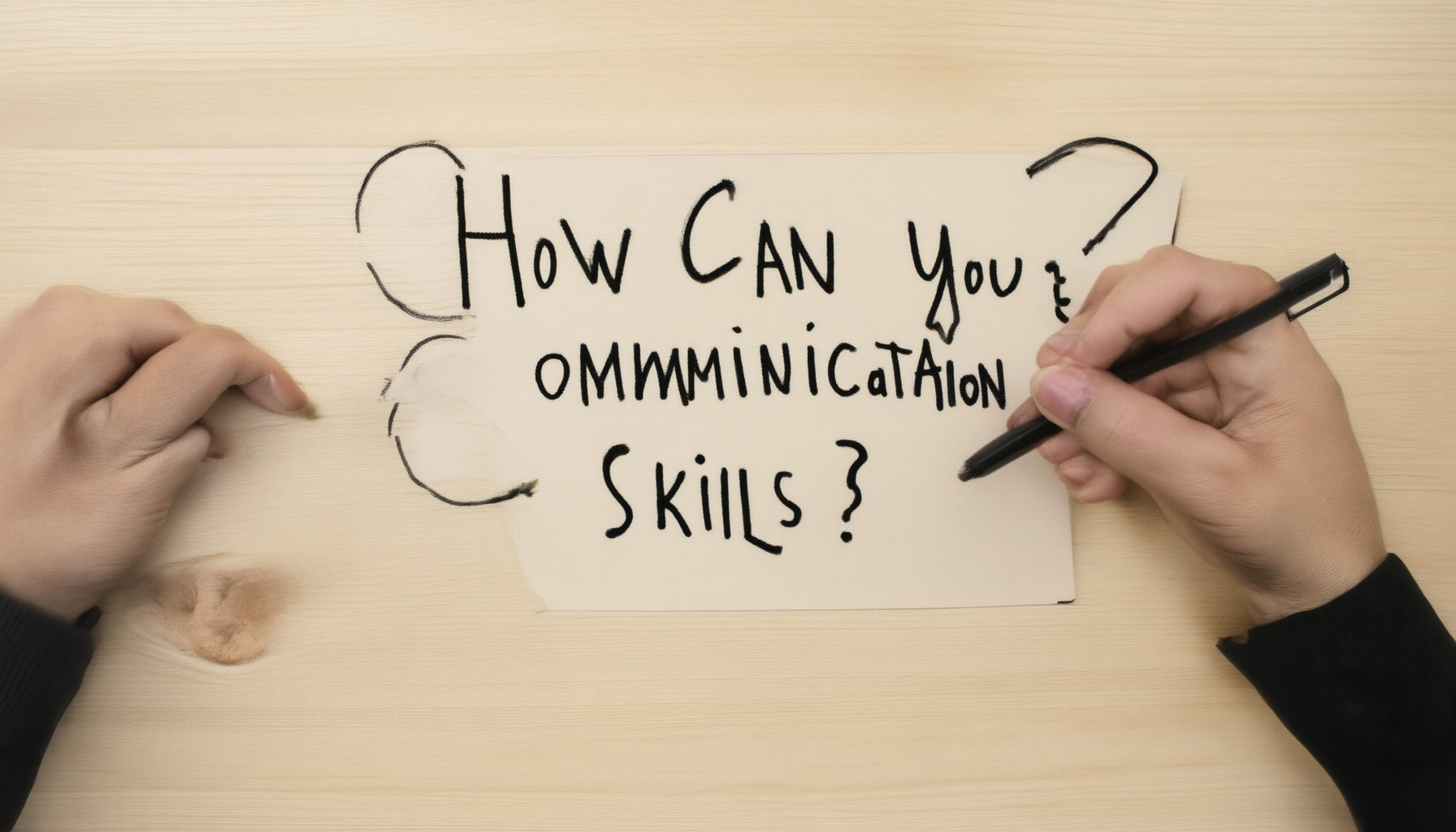Effective communication is a cornerstone of success in both personal and professional realms, yet many struggle to master it. Whether you’re aiming to strengthen relationships, excel in the workplace, or simply improve everyday interactions, enhancing your communication skills can unlock new opportunities and foster deeper connections. This comprehensive guide delves into the essential strategies, principles, and tools designed to help you refine your communication abilities, ensuring you become a confident and impactful communicator.
Key Takeaways
- Master Active Listening to build deeper connections and foster trust.
- Tailor Effective Communication to resonate with diverse audiences.
- Resolve Conflicts Calmly to find mutually beneficial solutions.
- Cultivate Empathy to understand and support others’ emotions.
- Adapt Your Style to communicate clearly across different situations.
- Leverage Nonverbal Cues to enhance your influence.
- Write Clearly and Professionally to ensure your message is received.
- Deliver the Right Message aligned with your intentions.
- Choose the Appropriate Medium for each interaction.
- Engage at the Right Time to maximize impact.
- Tailor Messages to Individuals based on their unique backgrounds.
- Create Supportive Environments for open and respectful dialogue.
How to Improve Your Communication Skills
To enhance your communication skills, consider implementing the following structured approach:
- Active Listening : Practice focusing fully on the speaker by maintaining eye contact, nodding, and avoiding interruptions. This fosters deeper understanding and more meaningful exchanges.
- Body Language : Consciously manage your posture, smile, and avoid closed-off gestures like crossed arms. Engage fully with your surroundings to project approachability.
- Stay Calm Under Pressure : Before contributing in discussions, take a few deep breaths to compose yourself. This helps in articulating thoughts clearly and calmly.
- Practice Gratitude : Acknowledge others’ contributions promptly to reduce stress and foster positive interactions, making communication feel more natural.
- Be Mindful of Nonverbal Cues : Observe and mimic positive body language cues from others to convey openness and engagement, avoiding unintended signals of disinterest.
- Seek Feedback Constructively : Don’t shy away from asking peers for honest opinions. Use this feedback to identify strengths and areas for improvement.
- Cultivate Empathy : Put yourself in others’ shoes to respond thoughtfully. Show interest by asking clarifying questions to understand their perspectives better.
- Improve Public Speaking : Join groups like Toastmasters or practice in front of mirrors to build confidence. Visualization exercises can also reduce performance anxiety.
- Adapt Your Style : Adjust your communication approach based on the audience. Note what styles resonate most effectively in various settings.
- Continuous Learning : Explore resources like books or online courses to gain new techniques and strategies, applying them consistently for gradual improvement.
By systematically addressing each of these areas, you can develop stronger, more effective communication skills over time.
What Are the 7 Cs of Communication Skills?
- Clear : Make your message understandable and direct.
- Concise : Avoid unnecessary words and get straight to the point.
- Concrete : Use specific examples and details to illustrate your ideas.
- Correct : Ensure accuracy in your information and avoid mistakes.
- Coherent : Organize your thoughts logically for easy comprehension.
- Complete : Provide all necessary information to fully communicate your message.
- Courteous : Show respect and consideration in your interactions.
The 7 Cs of communication are essential for effective interaction. While the original framework focuses on clear, concise, concrete, correct, coherent, complete, and courteous communication, some experts expand this list to include additional crucial components:
- Confidence : Present yourself assuredly and approach conversations with self-belief.
- Compassion : Understand and share the feelings of others in your communication.
Mastering these skills ensures your messages are not only received but also understood and appreciated. For further reading on improving your communication abilities, explore our guide to effective communication and discover tools to enhance your personal and professional interactions.
What are the 5 C’s of Communication?
The 5 C’s of communication are essential for fostering effective and meaningful interactions. Here’s a breakdown:
- Clarity : Ensure your message is easy to understand. Avoid ambiguity and communicate your ideas clearly.
- Consistency : Maintain reliable and dependable communication patterns. People trust those who are consistent in their messaging.
- Concreteness : Use specific examples and details to support your points. Vague statements can lead to confusion.
- Compassion : Approach conversations with empathy and understanding. Show care and concern for the other person’s feelings.
- Confidence : Speak with assurance and conviction. Confidence helps others trust your words and ideas.
By focusing on these principles, you can enhance your communication skills and build stronger connections. For more tips on improving your communication, visit our resource hub .
5 Essential Communication Skills
- Active Listening: Actively paying attention to what someone is saying, understanding their perspective, and responding thoughtfully. This involves paraphrasing what they said to confirm understanding and asking clarifying questions.
- Effective Communication: Clearly expressing ideas while considering the audience’s background and needs. It includes using non-verbal cues like body language and eye contact to convey messages effectively.
- Conflict Resolution: Addressing disagreements constructively by staying calm, using “I” statements, and seeking mutually beneficial solutions rather than winning the argument.
- Empathy and Emotional Intelligence: Understanding and sharing the feelings of others, which helps in building rapport and providing support during difficult conversations.
- Adaptability: Adjusting communication style based on the situation, whether it’s a formal meeting or a casual conversation, to ensure clarity and resonance with the audience.
What Are the Three Strongest Communication Skills?
The ability to communicate effectively is a cornerstone of success in both personal and professional settings. Mastering the three strongest communication skills can significantly enhance your interactions, leading to better outcomes in relationships, career growth, and problem-solving. Here’s a breakdown of the essential skills:
- Active Listening :
Active listening involves fully focusing on the speaker, understanding their message, and responding thoughtfully. This skill builds trust and fosters deeper connections. By asking questions, nodding, and maintaining eye contact, you show that you value the conversation. Remember, listening is not just hearing—it’s about processing and understanding the intent behind words. - Nonverbal Communication :
Nonverbal cues, such as body language, facial expressions, and tone of voice, often convey more information than words alone. A confident stance, open gestures, and a warm smile can make you appear more approachable and trustworthy. Conversely, crossed arms, avoiding eye contact, or a monotone voice can come off as dismissive or uninterested. Being aware of your nonverbal signals ensures you’re sending the right message. - Written Communication :
Clear and concise writing is crucial for conveying ideas effectively, whether through emails, messages, or reports. Clarity is key—avoid jargon and ensure your message is easily understandable. Proper grammar and punctuation are also vital to maintain professionalism and credibility. Whether you’re drafting a quick note or a formal document, attention to detail ensures your message is well-received.
By honing these skills, you can become a more effective communicator, building stronger relationships and achieving your goals with greater ease. For further insights into developing these habits, explore our guides on Improving Relationships and Fostering Trust .
What Are the 5 R’s of Communication Skills?
The 5 R’s of communication skills are essential for fostering effective and meaningful interactions. Mastering these principles ensures clear, respectful, and impactful communication.
- Right Message: Communicate clearly and concisely, ensuring your message aligns with the intended purpose and context.
- Right Medium: Choose the most appropriate method of communication whether verbal, written, or non-verbal, based on the situation and audience.
- Right Time: Communicate when the recipient is most receptive and able to engage effectively.
- Right Person: Tailor your message to the individual’s background, needs, and understanding level.
- Right Setting: Ensure the environment supports open dialogue and mutual respect, free from distractions or biases.
Mastery of these R’s enhances personal and professional relationships, building trust and understanding. By prioritizing these principles, you can communicate more effectively and meaningfully, whether in personal growth or relationship-building efforts. Explore more tips and resources on Chris and One to further develop your communication skills.









0 Comments